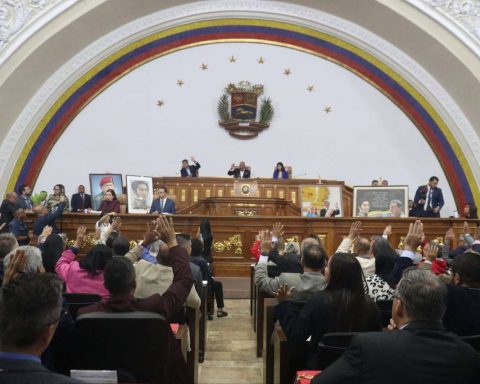Perhaps that is why he waited until his last days as president to launch this powerful initiative, which has paralyzed the workers of the Judicial Branch in most of the country; and also left the Mexican economy in suspense, which is reeling from such drastic changes.
First of all, we must understand that the Mexican Constitution has cost a lot of blood during its 200 years of existence, and has been modified six times. That of 1917, the one that governs us today.
Our current Magna Carta is the result of a strong revolutionary battle. It has been modified more than 700 times, seeking to adapt the legal framework to the social, political and economic changes that we have experienced, in a country that is just taking its first steps towards democracy.
Reforms cannot be a simple “snapshot”; they consist of a legislative process that should be methodical, democratic and scientific. In Mexico, although the president can create initiatives to create or modify laws, the power to make constitutional reforms falls mainly on the Congress of the Union, composed of the Chamber of Deputies and the Senate. For a reform to be approved, a favorable vote of two thirds of the members of both Chambers is required.
In addition, the reform must be ratified by at least 17 of the 32 state legislatures, which should guarantee a balanced representation between the federal government and the states. In theory, this process should have autonomy and go beyond electoral emotions or political banners. Something that has never happened.
The high risk of modifying the Constitution
The importance of not constantly modifying the Supreme Law is essential because it represents the fundamental principles that guide the functioning of a country.
Constitutional stability provides confidence to citizens and the economic sector by ensuring that basic rules are not arbitrarily changed by a new regime.
Making too many reforms can generate instability and distrust in all areas, thus weakening the legal system and affecting respect for the law. In addition, excessive reforms can dilute the original values of the Constitution and open the door to particular or circumstantial interests, affecting the common good and the future of new generations.
Although it may need to be adjusted occasionally to adapt to new contexts, changes must be carefully considered so as not to undermine the institutional structure or erode fundamental rights.
If we delve deeper into the reform proposed by the president, we find positive aspects and others that are uncertain and even negative.
In pro, we could summarize the most significant ones as follows:
1. Seeks to exterminate corruption in the Judiciary through an independent Judicial Disciplinary Court.
2. Establishes guaranteeable deadlines for resolving cases, speeding up justice in Mexico.
3. That people can learn about the profiles of judges and ministers who are seeking such an important position, bringing the Judiciary closer to the citizens.
But alarm bells ring when it is understood that:
1. The popular election of all judges carries a risk and could attack judicial independence.
2. The massive cuts and austerity proposed would lead to a lack of staff and infrastructure, which could make it difficult to meet the new deadlines – a complete contradiction.
3. The Judicial Disciplinary Court can be politicized and affect impartiality, as well as being used by criminal groups to punish honest judges who harm them.
Beyond the imminent reform (since Morena claims to already have more than one opposition senator in its pocket and the majority of the legislatures in the States are Morena supporters) we must delve into the weakness of the Legislature when there are not enough counterweights. Something that people do not usually think about while voting.
The immense challenge of representing the needs of all people
In our country there are not enough locks to give the autonomy that such an important power as the Legislative should have, which surrenders and falls on its knees, in front of the executive power, when the latter has such an overwhelming majority.
However, it is important that the Senate committees study the initiative in depth so that it is not voted on in a “sheepish” way, as was the case with the deputies, who did not even take the time to review it in committees with their antagonistic colleagues.

















